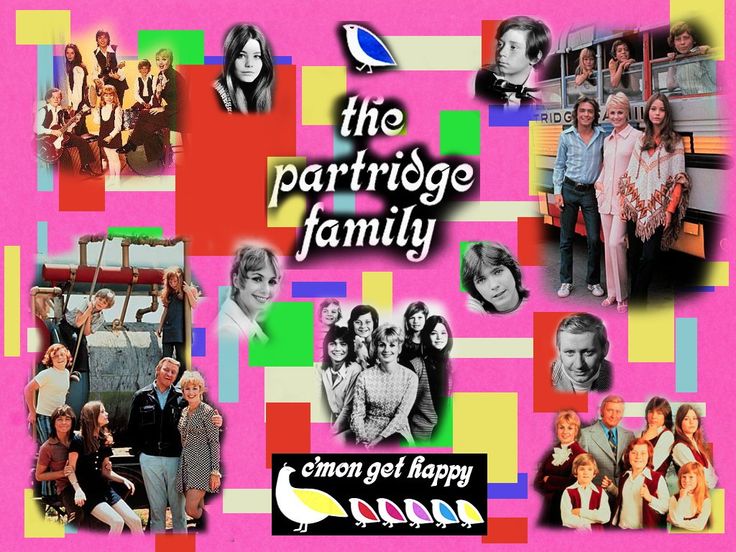
A promise to meet in the middle—young love learning the art of compromise.
Straight to the essentials: “I’ll Meet You Halfway” gave The Partridge Family a second straight springtime hit in 1971. Written by Gerry Goffin and Wes Farrell, produced by Farrell, and released on Bell in May 1971 with “Morning Rider on the Road” on the B-side, the single rose to No. 9 on the Billboard Hot 100 and No. 4 on the Adult Contemporary chart. It’s an early highlight on the group’s sophomore LP Up to Date, where its blend of candor and polish helped prove the Partridge project was more than a one-off phenomenon. Cash Box even called it the group’s “strongest to date.”
There’s a tidy studio story behind the glow. Most of Up to Date was cut at United Western (Hollywood); session logs place “I’ll Meet You Halfway” on November 12, 1970. You can hear the L.A. A-team all over it: Hal Blaine’s easy pocket on drums, Joe Osborn’s singing bass, guitars from Dennis Budimir and Louie Shelton, keys and string charts from Mike Melvoin, and that peerless vocal blend from John and Tom Bähler, Ron Hicklin, Jackie Ward, and Shirley Jones supporting David Cassidy’s lead. The result is quintessential early-’70s craft—air around the voice, rhythm section relaxed but alert, strings that lift without syrup.
What was new was the feeling it brought to AM radio. Coming after the breathless confession of “I Think I Love You” and the diary-entry intimacy of “Doesn’t Somebody Want to Be Wanted,” “I’ll Meet You Halfway” shifts the conversation from infatuation to agreement. Goffin’s lyric is plainspoken but grown: it asks for partnership rather than surrender—meet me in the middle and we’ll make it work. Cassidy’s phrasing leans into that modest courage. He doesn’t belt the chorus into submission; he rounds the vowels, leaves little pockets of silence, and lets the line feel like a hand extended across a table. Older ears recognize the wisdom there: the moment you realize love isn’t won by winning—it’s built by bending.
The arrangement tells the same truth. Melvoin’s strings and horns are supportive, not showy, and Blaine’s drum figures move like steady breath. The backing vocals cushion the title phrase so it lands as reassurance, not ultimatum. It’s “bubblegum” only in the sense that it’s sweet; the workmanship is adult: tempo held in check, dynamics shaped with care, nothing in the way of the message. That’s why the record ages so gracefully. Swap the haircuts and the fashions and the core is still sound: a decent melody, a humane idea, a performance that trusts the listener.
For the chart-watchers, the single’s run through spring and early summer 1971 confirmed the show-and-radio feedback loop that defined the era. On Billboard, it peaked at No. 9; on the AC list, No. 4—a tidy sign that the record spoke both to teenagers and to the parents who were hearing it over breakfast. Across the Atlantic, it later resurfaced on a 1972 U.K. maxi-single as the B-side to “Breaking Up Is Hard to Do,” riding the wave of Cassidy’s solo stardom there.
The song also traveled interesting roads after 1971. Instrumentalist Roger Williams folded it into his Summer of ’42 set; Wayne Newton and even alt-rock pranksters Redd Kross offered their own readings years later; David Cassidy revisited it on his Then and Now collection, turning a youthful promise into an adult reflection. If a tune can handle that many wardrobes, it’s because the bones are good.
Listen now, and you may feel the small drama the title suggests: two people in a room, neither quite sure, both willing to try. The record honors that moment by keeping everything proportional. No grand sermon, no lush excess—just a clear invitation set to a melody you can hum on the walk home. For the generation that first heard it on transistor radios and TV speakers, it’s a memory of conversations where pride stepped aside and grace took a seat. For those arriving later, it’s a reminder that compromise doesn’t dim romance; it gives it a place to live.
Put it on tonight and notice how gently it makes its case. “I’ll Meet You Halfway” doesn’t try to win an argument; it offers a path forward—and sometimes, as life keeps teaching us, that’s the bravest love song of all.
Was Cassidy the only one singing and everybody else pantomime?